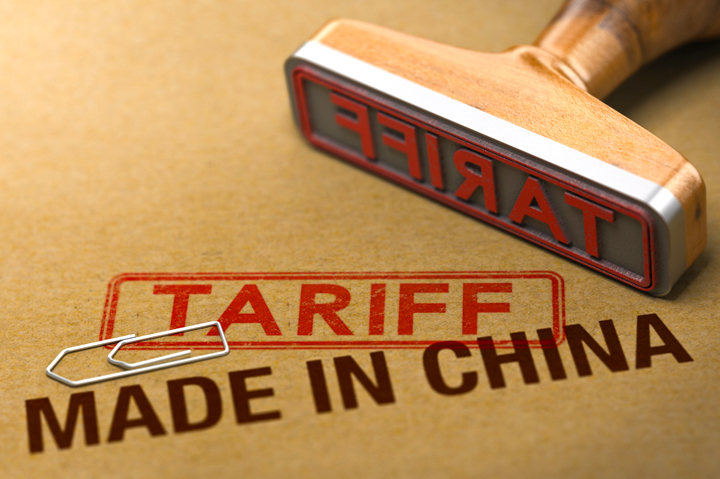News May 04, 2022
US Trade Rep to Review China Tariffs
Some in the Biden administration reportedly favor rolling back the tariffs to ease inflation. The levies have contributed to price increases on promo products and compelled suppliers to move some production out of China.
The future of the China tariffs is up for discussion.
President Joe Biden’s top trade negotiator, U.S. Trade Representative (USTR) Katherine Tai, said this week that reducing the U.S. tariffs on imported goods from China is one of a number of options the administration could consider as part of efforts to combat inflation, which increased in the United States at a 41-year-high of 8.5% between March 2021 and March 2022, the most recent month for which numbers are available.

“Are they on the table or not? All tools are on the table,” Tai said of tariffs during an interview at the Milken Institute Global Conference in Los Angeles. “The question is, ‘What do you do with them?’”
Tai cautioned that the administration doesn’t want to make short-sighted decisions to fight inflation that will hurt the longer-term goal of changing the U.S.’s trade relationship with China.
Reuters reported that sources familiar with the administration’s stance on tariffs said no major moves were imminent on the levies. Nonetheless, The Wall Street Journal reported that Treasury Secretary Janet Yellen and Commerce Secretary Gina Raimondo favor rolling back the tariffs, while Tai and others are leery about doing so for fear of losing leverage over China in the ongoing initiative aimed at reforming Chinese economic behavior.
Biden officials are divided over whether to pare back tariffs on imports from China in an attempt to reduce inflation - Yellen & Raimondo v. Tai, h/t @learyreports @aduehren @TokyoWoods https://t.co/78H70Df1D8
— Ken Thomas (@KThomasDC) May 3, 2022
Meanwhile, Tai’s office announced this week that it’s commencing a statutorily mandated review of the first group of tariffs on China-made goods, a process that could ultimately involve an analysis of whether to keep the levies in their current form, reduce them or remove them altogether.
The first step in the process is for Tai’s office to notify representatives of domestic industries that benefit from the tariffs that those levies could possibly be terminated and to give the representatives a chance to request their continuation.
“If a request for continuation is received, USTR will conduct a review of the tariff actions,” the trade office explained. “If one or more requests for continuation are submitted, USTR will publish an additional notice after July 6 announcing the continuation of the tariff action and will proceed with a review of the tariffs. The review will include an opportunity for all interested persons to provide comments.”
The majority of products sold in the $23.2 billion North American promotional products industry are produced in China. Former President Donald Trump implemented tariffs on billions of dollars’ worth of China-made imports in response to what he characterized as unfair trade practices by China.
Tariffs on promo imports, which include both apparel and hard goods, have contributed to price increases on industry-sold products in recent years. They’ve also propelled moves by suppliers (and distributors that import directly) to alter their supply chains so that they source more goods from countries outside China. Driven by ongoing trade uncertainty and other factors like COVID-19, promo’s international sourcing diversification has continued.
According to data from the U.S. Census, total U.S. imports from China peaked at $538.51 billion in 2018. The figure dropped to $450.76 billion in 2019, then fell further amid COVID-impacted 2020 to $434.75 billion. Despite tariffs and rampant supply chain disruption, U.S. imports from China rose in 2021, reaching $456.83 billion.
